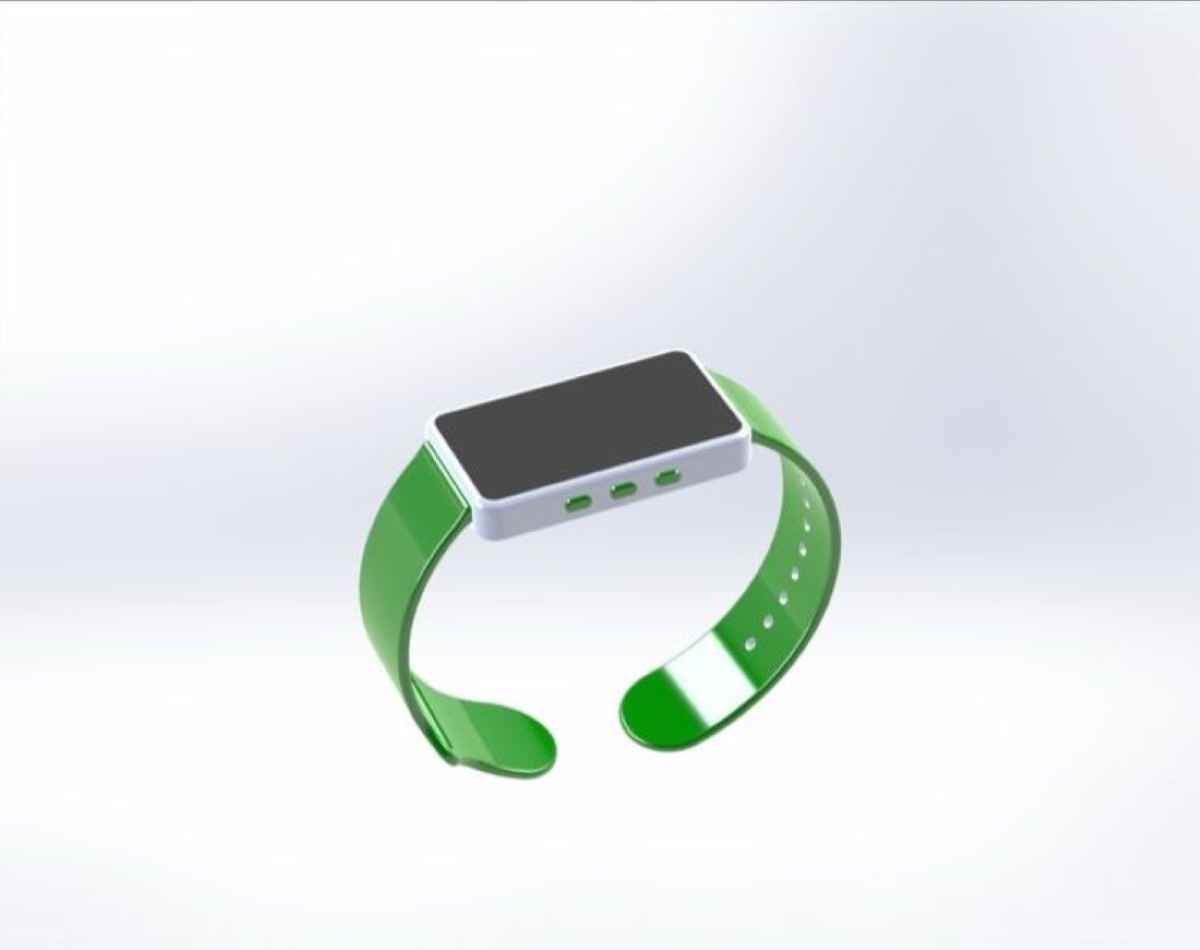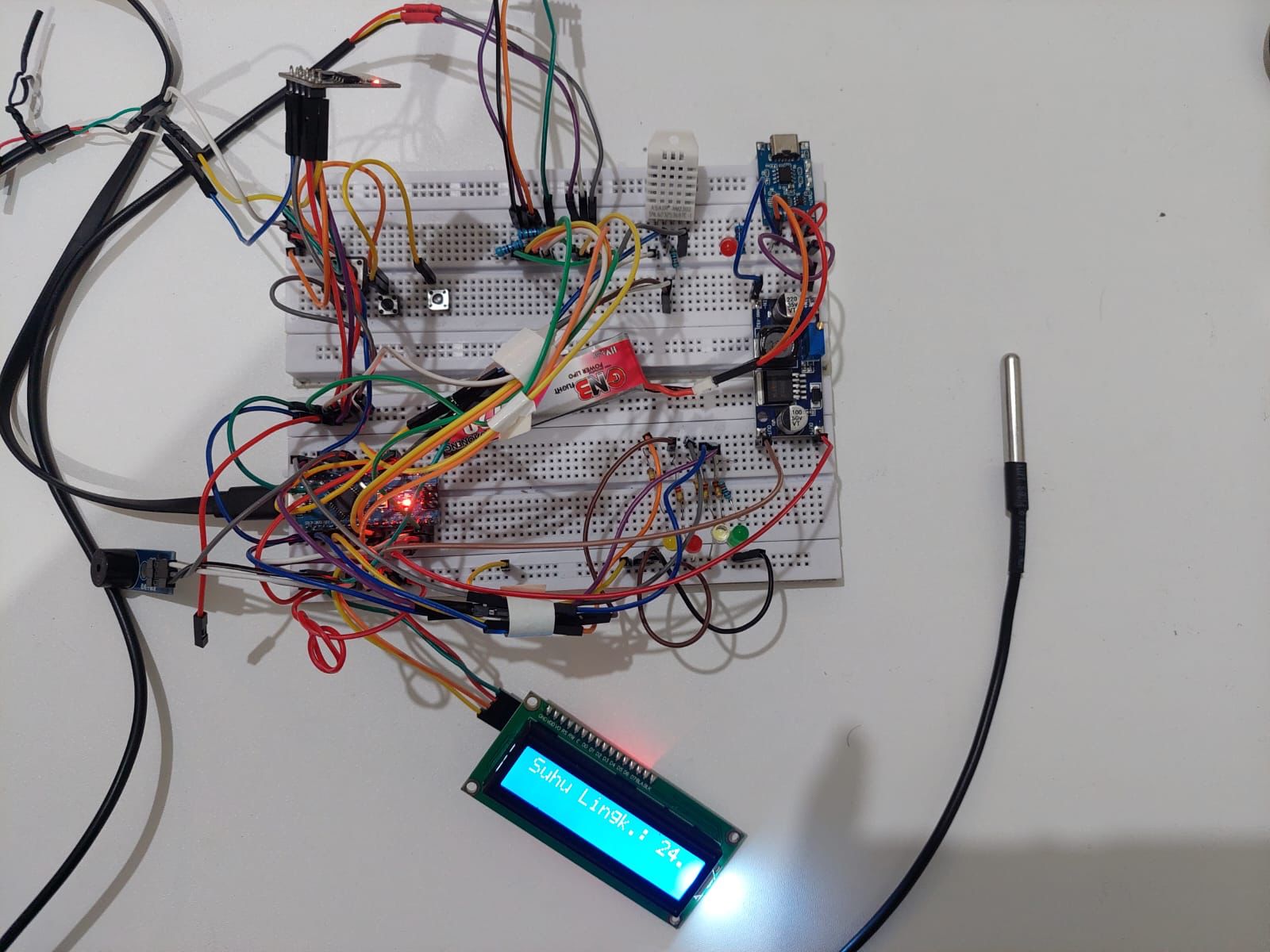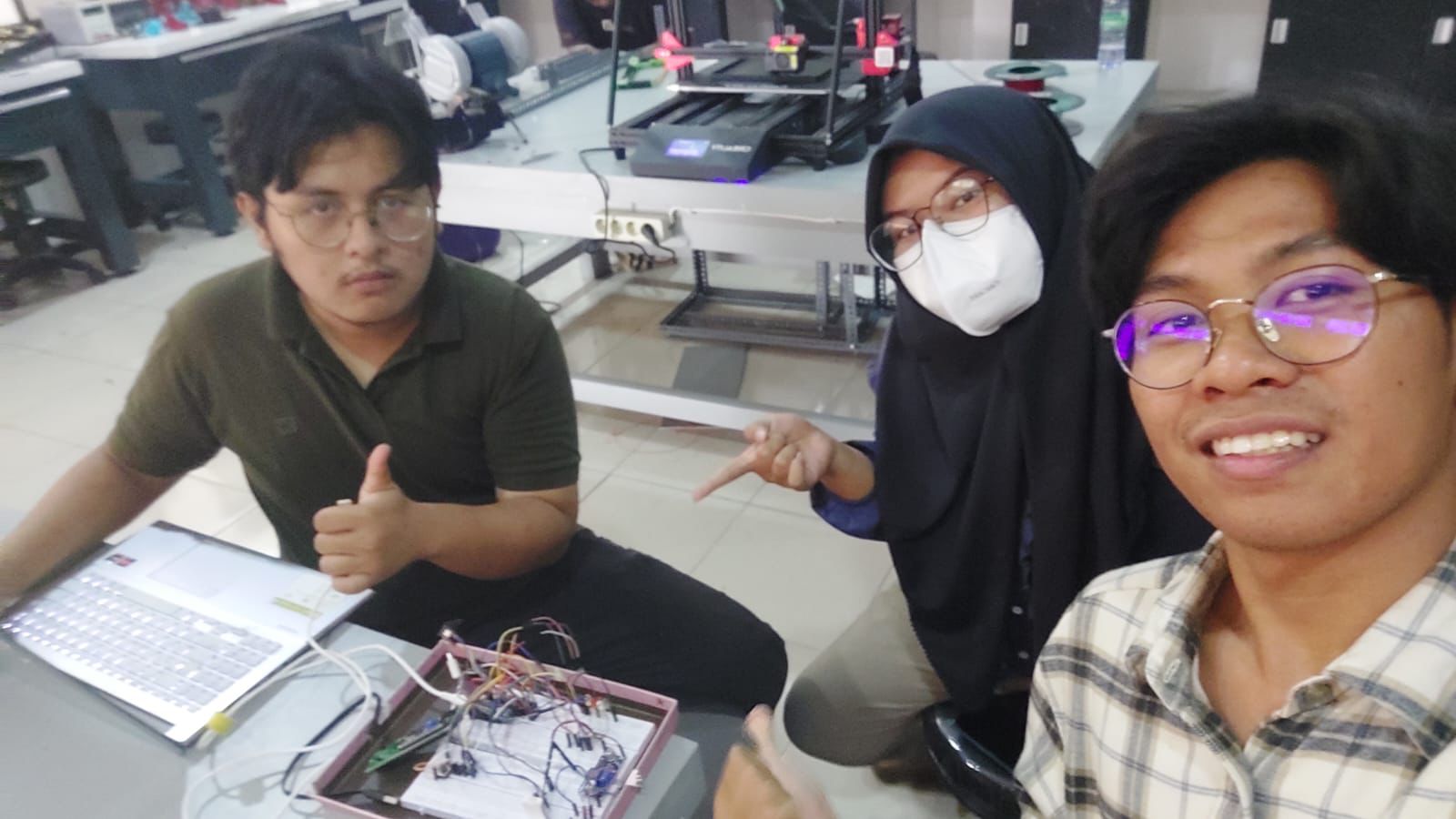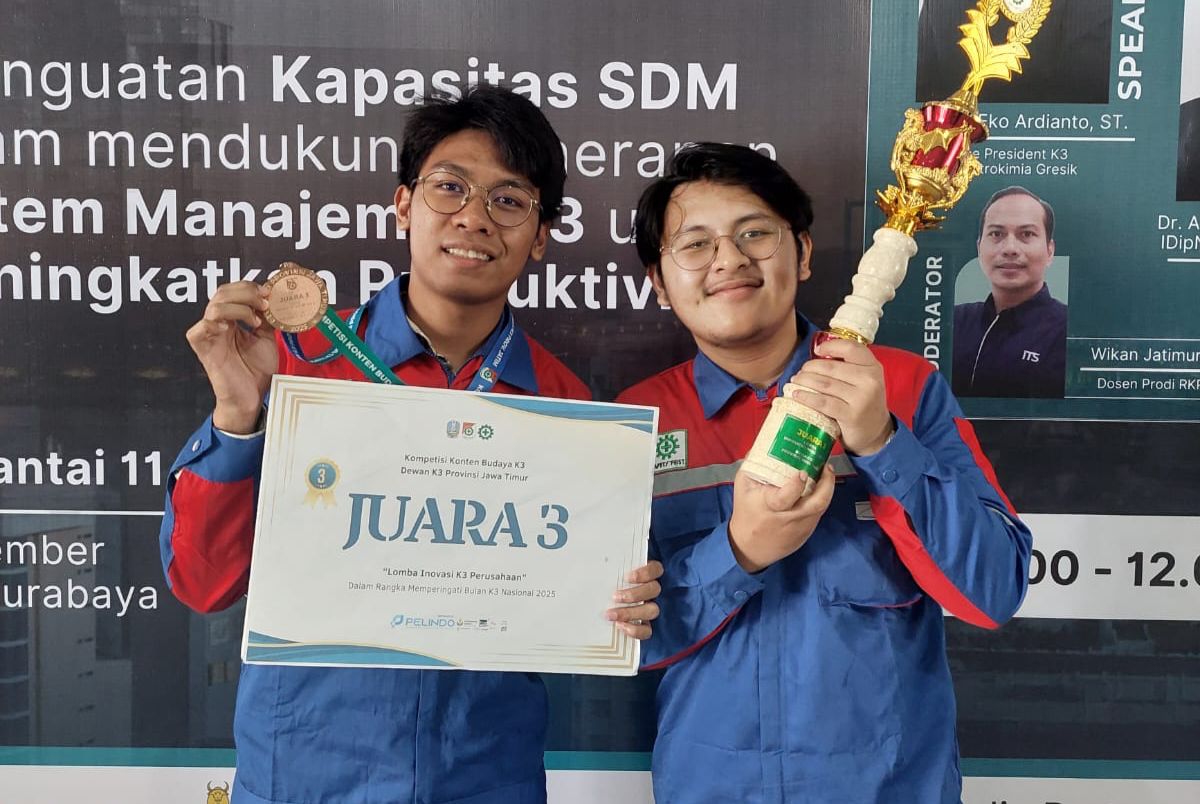Preventing Work Accidents, ITS Students Create Smart Sensor Bracelet

Illustration of the CAPES display, a smart bracelet created by a team of students from the ITS Process Safety Engineering (PSE) Study Program which is able to prevent work accidents in industry.
ITS Campus, ITS News — The increasing number of work accidents has become a scourge for the industry at Indonesia in recent years. Departing from this issue, a team of students from the Process Safety Engineering Study Program (PSE) of the Institut Teknologi Sepuluh Nopember (ITS) created CAPES, a smart sensor bracelet that can help prevent work accidents.
The CAPES innovation team leader, Muhammad Rafi Kalevi, revealed that CAPES is a smart bracelet designed to prevent work accidents. This bracelet is presented as a solution to the increasing number of work accidents in Indonesia. According to him, one of the efforts to reduce work accidents currently lies in monitoring the vitality aspects of the human body.

The CAPES prototype, created by a team of students from the ITS Process Safety Engineering (PSE) Study Program, has three sensors that measure human body vitality.
CAPES was developed as a risk mitigation tool equipped with several sensors to measure human body performance. This allows CAPES to be a solution to the current rampant issue of work accidents. In addition, its shape in the form of a bracelet also gives a practical impression when used. “Making CAPES effective as one of the solutions for handling work accidents,” said the young man who is familiarly known as Levi optimistically.
The batch 2024 student then explained that the way CAPES works is very practical. He explained that CAPES is used like a bracelet in general. After being properly installed on the arm, CAPES will measure all vital activities of the user’s body through the three available sensors.

(from the left) Muhammad Irfan Ali, Faizatuzzahra, and Muhammad Rafi Kalevi while designing the CAPES prototype
The three sensors include DHT22 for humidity and room temperature, DS18B20 for body temperature, and MAX30102 for heart rate detector and blood oxygen levels. If the three detectors detect the user’s vital activity exceeding the human body’s standards, CAPES will provide a warning in the form of a ringing sound.
In addition, the tool developed by Levi together with Muhammad Irfan Ali and Faizatuzzahra is also equipped with Internet of Things (IoT) technology, allowing user status to be monitored via a device connected to CAPES. “IoT technology makes it easy for top management to monitor the vital conditions of their employees,” said Levi.

(from the left) Muhammad Rafi Kalevi and Muhammad Irfan Ali when they won third place in the Company OSH Innovation Competition held by the East Java Provincial OSH Council (DK3P Jatim)
He said that CAPES is a form of the Sustainable Development Goals (SDGs) implementation, especially point 3 regarding Good Health and Well-Being. In the future, Levi hopes that the innovation that has successfully won third place in the Company OSH Innovation Competition organized by the East Java Province Occupational Safety and Health Council (DK3P Jatim) can contribute to overcome the problem of work accidents in Indonesia. (ITS PUBLIC RELATIONS)
Reporter: Ahmad Farhan Alghifari
Related News
-
ITS Lecturer Introduces Madurese Culture to the International Stage
ITS Campus, ITS News — Continuing to show local wisdom to the world community, this time a lecturer from the Department
February 19, 2025 18:02 -
ITS Researchers Remind TKDN is Crucial for Economic Independence
ITS Campus, ITS News — The Domestic Component Level (TKDN) is the key to restoring the glory of the Indonesian
February 19, 2025 18:02 -
Strengthening Quality Education, ITS Professor Develops Adaptive Technology for Students
ITS Campus, ITS News — Differences in students’ abilities in understanding lessons are often a challenge for teachers in the classroom.
February 19, 2025 18:02 -
ITS Graduates Create Reverse Logistics Model for PET Plastic Waste Recycling
ITS Campus, ITS News — Doctoral graduate from the Department of Industrial and Systems Engineering, Sepuluh Nopember Institute of Technology (ITS) Dr. Yuniar
February 19, 2025 18:02
